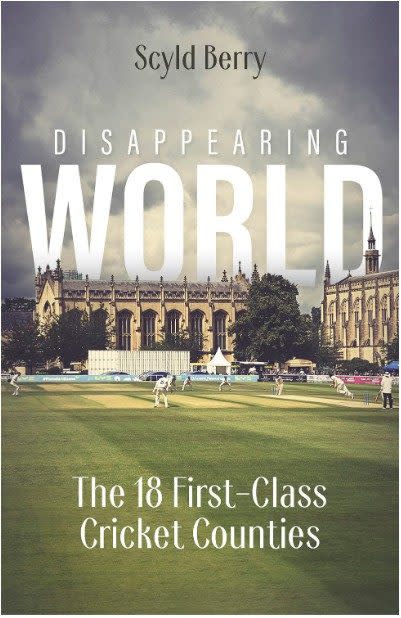
A friend was driving his seven-year-old child – a boy but it could have been a girl – past Lord’s cricket ground. “Look!” the boy said, as he stared at the floodlights and stands which must have assumed gigantic proportions in his eyes. “That’s the home of London Spirit!”
Not the home of Middlesex. Not the home of Marylebone Cricket Club. Not even the home of the England cricket team. What is more, this brief encounter occurred before the Hundred had even been launched and a ball bowled in the new format. Yet this young cricket enthusiast was already identifying with, not a first-class county, nor even his country, but a short-form franchise.
This story could be interpreted as a triumph of branding: of how successfully the Hundred’s advertising campaign captured new and young imaginations. Deliberately the marketing people did not appeal to traditional loyalties which, in English domestic cricket, had hitherto been based on county boundaries. They based the identity of the Hundred teams on three cities (London, Birmingham and Manchester), three regions (Northern, Trent and Southern), one ground (The Oval) and one country (Wales).
When I was a seven-year-old, I identified with Yorkshire; my eyes were set on Bramall Lane in Sheffield. A Test match could be momentous: We were on holiday in a fishing village in the north of Scotland in 1961 when England crumbled on our fuzzy television on the final afternoon at Old Trafford against Richie Benaud.
But every Yorkshire match was dramatic from the moment you walked down Bramall Lane, past factories and terraced houses black with soot. As if it were yesterday, I can remember pushing through the turnstiles – like the crash barriers they were painted bright red – and running up the steps of the stand at the Shoreham Street end, then down the terraces on the other side, until I could see – below the roof of the football stand – white figures on the field and the scoreboard.
I shouted out the score to my mother trailing behind, carrying her knitting and our tea. (Most of Yorkshire’s matches at Bramall Lane took place in term-time, as the ground would have to be handed back to Sheffield United during August, so we usually arrived in mid-afternoon.) In my life I have not been happier, provided Yorkshire were winning the county championship, which they usually did in the 1960s: six times out of 10.
Decline of the traditional shires
If we could look through the eyes of a seven-year-old at the broader sweep of life in Britain now, the county or shire would not loom so large. Administrative boundaries which had applied for a millennium have been several times re-drawn. If you inhabit the city of Bristol, you ceased to live in Gloucestershire or Somerset, but in Avon, then in the County of Bristol.
If you inhabit Birmingham, you no longer live in Warwickshire but the West Midlands; Mancunians come from Greater Manchester not Lancashire. It is a fact of life that many councils, police, fire and ambulance services are no longer based on, or named after, the traditional shire.
In Anglo-Saxon and Norman times, the King’s men had drawn lines on a map of England to decide the areas where he would be represented by a Lord Lieutenant and a Sheriff; and their quills did not always have natural boundaries or contours to follow.
Cross the long bridge over the River Tamar and the distinction between Devon and Cornwall flows in front of your eyes: Cornwall is Cornwall. Elsewhere in England and Wales, one can walk or drive from many a county into its neighbour without seeing any difference in the terrain, architecture or people.
It is against this inexorable drift towards new identities, which county cricket struggles. Children grow up not knowing that they were born in a part of Britain which used to be called a county; and people arriving from abroad can settle in a part of Britain which used to be a county but they will be unaware that it ever existed. Hence the appeal of new identities to which they can relate, like Birmingham Bears or London Spirit.
We should not ignore, however, a benevolent aunt or uncle who is falling on hard times. To the majority of people in England and Wales, perhaps, county cricket no longer has significance; and yet, to a substantial minority, it continues to mean so much.
Our lives have been interwoven with cricket seasons: we will always remember that we were born, or married, in the year Loamshire won their first championship.
We need county cricket, and the championship in particular, to provide continuity and a sense of stability, as an integral part of an existence that technology makes ever more complicated. If only for a few minutes over breakfast, the scores of county cricket matches – the doings of men whom we may never see live – are conducive to our well-being.
If county cricket is diminishing, even if only as a proportion of the whole, so too I guess is much of what we value most on earth. Glaciers, rainforests, wetlands, marshes and coral reefs are also disappearing, and should be treasured and celebrated in order that we may preserve them.
This book celebrates county cricket while we can.

Disappearing World, Our 18 First-Class Counties, is published on Monday by Pitch Publishing priced £19.99.
Article courtesy of
Source link